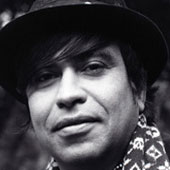The United States of Latin America
In the aftermath of the economic crisis, could Latin America become a new world economic leader?
December 11, 2010
There is much that the United States of America and Latin America have in common. Both are continent-size geopolitical units comprising different states, with their own histories, nuances and differing political and economic outlooks. Both were colonized by small seafaring nations before gaining independence within decades of each other.
Both gave origin to and developed republican democracies, more or less decentralized, in which state governments have considerable power. Their populations are made up of the descendants of their original inhabitants, early colonists and African slaves, complemented later on by European and then Asian migrants.
Both would seem surprisingly religious to European eyes, with different denominations of the Christian faith competing for believers, while at the same time developing collage versions of western religiosity and culture mixed up with pre-Columbian symbols, African beliefs and enlightened home-grown secular voices.
In fact, both contributed decisively to the birth and global spread of a form of Enlightenment that traversed cultures, languages and localities, in the process inventing new ideas of liberty, notions of human brotherhood based on empathy, and truly universal conceptions of equality that became a springboard for social, cultural and political experimentation.
They have both developed a culture all of their own, but look for inspiration to one another more than they do elsewhere, at least since the onset of the Monroe Doctrine, and in view of a constant exchange of goods, populations and even territories.
Those same exchanges are the source of their stark differences. The United States of America is rich, while Latin America is comparatively poor. America fights wars elsewhere in the world. Latin America does not.
Look closely, however, and some of these distinctions between America and Latin America begin to blur.
In fact, as America's middle class threatens to crumble under the weight of the economic crisis, it will find itself in political territory that would be familiar to many south of the border. All the while, the middle classes of countries like Brazil or Colombia seem more confident about their prospects for the future. Many of Brazil's younger businessmen and bankers hold postgraduate degrees from American business schools.
American hip hop is a staple of Amerindian and Afro-Latin American culture. And although Latin Americans do not tend to fight wars elsewhere, in South Africa I was constantly reminded of how important the presence of Cuban and other Latin American fighters was to the defeat of the apartheid regime based in Pretoria.
The Latin American decision to set up a Community of Latin American and Caribbean States, which also finds inspiration in the European dream of union, is crucial in order to understand the world order that will take us into the next century. This is because it acknowledges that the alternative — of this crisis lasting a very long time or being systematically followed by other crises — is simply unacceptable.
The Community of Latin American and Caribbean States has gathered around the goal of redefining the international monetary system in the name of national sovereignty and regional poles, on the one hand, and the philosophy of the equality of commercial and economic relations in and between societies, on the other.
In this sense, it recognizes that the growing inequality within and between nations — which generates broken societies and leads to conflict — cannot be allowed to continue.
For Europeans and Americans, Latin America is still little more than their underdeveloped sibling, its inhabitants pitching up on its shores or struggling across the Rio Grande into the United States. It is a place of exuberant music, mesmerizing football, extravagant beauty, fantastic literature, and drug trafficking, caudillos, dictatorship and guerrilla warfare — in short, exotic, dangerous and exciting.
However, by being unafraid to turn its back on some commonly held economic views that have now lost their currency, and energized by the creativity of its younger population and the collective discipline and memory of its Indian and Afro-Latin American grassroots, Latin America is making its presence felt from Brasilia to London and from Buenos Aires to New York.
Editor's Note: This essay has been drawn from Oscar Guardiola-Rivera's "What if Latin America Ruled the World?: How the South Will Take the North Through the 21st Century" published by the Bloomsbury Press on September 14, 2010. Copyright 2010 Oscar Guardiola-Rivera. Reprinted with the permission of the publisher.
Takeaways
By being unafraid to turn its back on some commonly held economic views that have now lost their currency, Latin America is making its presence felt.
The Latin American decision to set up a Community of Latin American and Caribbean States is crucial in order to understand the world order that will take us into the next century.
America's middle class will find itself in political territory familiar to many south of the border.
For Europeans and Americans, Latin America is still little more than their underdeveloped sibling, its inhabitants pitching up on its shores.
